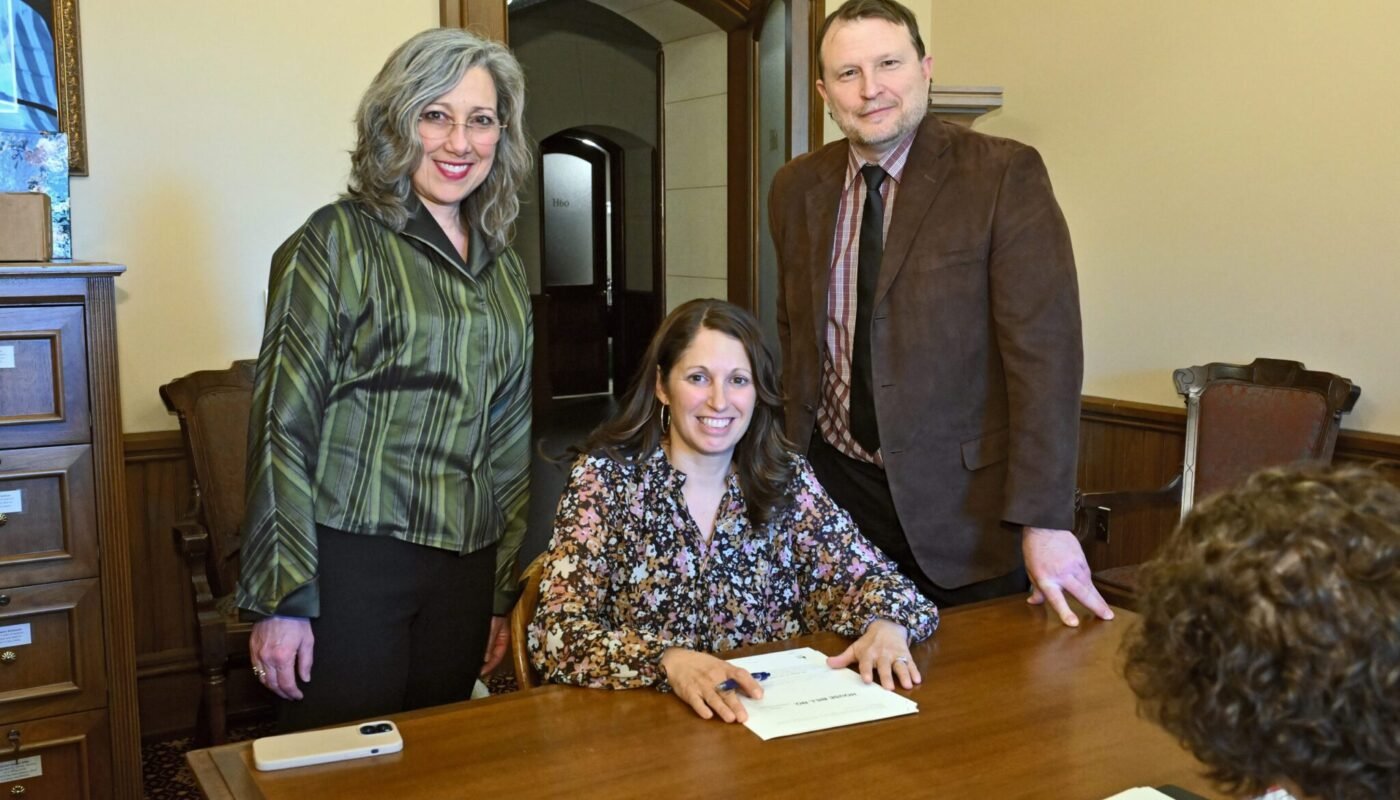Rep. Jennifer Wortz’s proposal would allow homeschooled students in Michigan to take core academic courses at local public schools with state support.
Homeschool Access Proposal Would Repeal Ban on Core Class Enrollment
LANSING, MI – State Representative Jennifer Wortz (R-Quincy) has introduced House Bill 4330, a measure that would dramatically expand access to public education for Michigan’s homeschool and private school students. If passed, the bill would allow these students to enroll in core academic courses at local public schools—with the state providing school aid funding for their participation.
Under current Michigan law, students outside the public system can only receive publicly funded instruction in nonessential electives, such as music, art, and computer science. Wortz’s proposal would repeal a longstanding provision of the State School Aid Act of 1979 that excludes homeschool and private students from accessing publicly funded instruction in subjects like math, English, science, and social studies.
“Taxpayer-funded schools exist to serve everyone,” Wortz said. “By opening all public school classes to homeschool students, my plan will bridge the gap between public school and home education.”
House Bill 4330 Targets Flexibility, Fairness for Homeschool Families
Wortz frames the bill as an effort to provide flexibility and educational equity to families who choose to homeschool but still want access to structured classroom experiences for certain subjects.
“Families who teach their children at home know more than anyone that every student has unique needs,” Wortz said in her statement. “Parents might want a child to take geometry, physics, or another core subject in a school classroom or lab.”
Currently, Michigan provides partial state funding for homeschoolers to take electives through their local districts, but specifically bars funding for essential courses that count toward graduation or grade-level progression.
What’s in the Bill: More Than Just Opening Classroom Doors
The bill amends Section 166b of the State School Aid Act, removing the restriction that limits state funding to nonessential courses. It would instead permit homeschool or nonpublic school students to enroll in any curricular offering available to full-time pupils, as long as they meet the same eligibility criteria.
Highlights of the bill include:
- State school aid eligibility for core subjects like algebra, biology, U.S. history, and civics.
- Districts would still have discretion to accept or deny enrollment but must respond to requests in writing.
- Courses must be taught by certified district teachers and be open to full-time students as well.
- Background checks and safety measures would remain in place for all instructors.
The proposal also clarifies definitions for “essential” versus “nonessential” courses, with remedial and college-level courses addressed specifically.
Homeschool Access Debate Likely to Stir Divided Reactions
The proposal is likely to spark debate among education stakeholders. Supporters of the bill may see it as a natural extension of school choice, especially in rural and underserved communities where homeschooling is more common and public schools may offer specialized labs, AP classes, or extracurriculars not easily replicated at home.
Critics may question whether expanding state aid to private and homeschool students undermines funding for full-time public school enrollees, particularly amid rising concerns about budget constraints and teacher shortages.
Opposition Voices Concerns Over Potential Impacts
While the bill aims to enhance educational opportunities, some stakeholders have expressed reservations. John Taylor, a resident of Newaygo County, commented on the broader implications of unregulated homeschooling: “Parental control of a child’s education, without state regulation or curricula and standards, is not education. It is indoctrination.”
Similarly, Clarence Goodlein of Luther in Lake County voiced concerns about potential overreach: “Most parents don’t want the state to tell them how to raise their children.”
These perspectives highlight the ongoing debate about the balance between educational freedom and state oversight.
What’s Next for House Bill 4330?
The bill has been referred to the House Committee on Education and Workforce, where it will be considered before potentially advancing to the full House.
Supporters are urging quick passage, saying the legislation would modernize Michigan’s educational framework to better reflect the growing diversity in how families educate their children.
Wortz’s bill also aligns with broader efforts nationwide to blur the lines between home and public education, while ensuring state funding follows students regardless of their schooling method.
Sources cited:
- Michigan House of Representatives – House Bill 4330, introduced April 17, 2025
- Rep. Jennifer Wortz, Press Statement, April 21, 2025
- Bridge Michigan – Bridge Michigan, April 10, 2024 – “Homeschool registry plan divides Michigan parents: Voices that shape debate“
Find More Interesting Feature Stories From ThumbWind
- Michigan Feature Stories – Unveiling the diverse and vibrant people, captivating places, and remarkable events that come together to make the Great Lake State unique and cherished by both residents and visitors alike.
- Weird Political News – A sarcastic take on official news from around the U.S., exploring the absurdities that often arise in the political landscape while providing a humorous perspective on current events and highlighting the quirks of politicians and policies.
- Michigan News – News and events from Michigan’s Upper Thumb region worth knowing, including local stories, impactful interviews, and updates on community happenings that shape the culture and lifestyle of the area.
Your Turn – Like This, or Loath it – We Want To Hear From You
Please offer an insightful and thoughtful comment. We review each response. Follow us to have other feature stories fill up your email box, or check us out on ThumbWind Publications.




